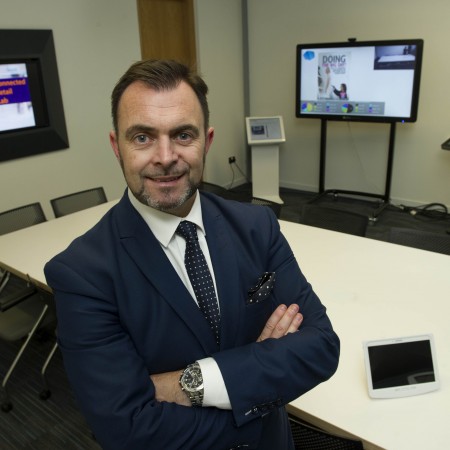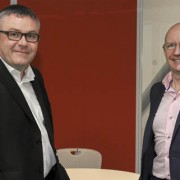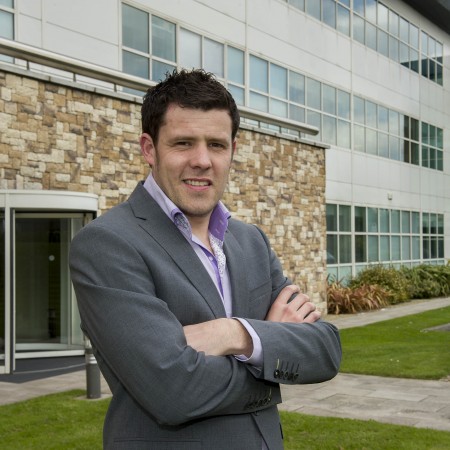Live showcase of cutting-edge technologies aims to help progressive retailers grow their customer revenues across online, mobile and in store
Dublin, Tuesday, 17th November 2015: Leading cloud services provider and connected retail specialist, MJ Flood Technology today announced the launch of the country’s first Connected Retail Lab, located at its headquarters in Baldonnell, Co Dublin.
The lab is a showcase for cutting-edge retail technologies, where retailers can explore opportunities to personalise their customers’ purchase journey from the high street, to online, in store and mobile in a live demo environment.
Visitors to the lab can experience first-hand the power of Cisco Wi-Fi solutions, smart signage, interactive touchscreens, augmented reality retail entertainment and deep customer analytics.
Connected Retail is the linking of consumers, devices and data to create more personalised shopping experiences, boost basket values and increase overall customer revenues.
Market research analyst Forrester estimates that by 2018, 44 per cent of all in-store retail sales in Europe, or €920 billion, will be influenced by online research, pointing to the importance of a digital presence even if the final transaction isn’t completed online.
Commenting on the launch, Keith Hanley, connected retail lead with MJ Flood Technology said:
“No two customer journeys are the same and as online consumers we have come to expect a high degree of personalisation through consumer-centric communications. We can now carry this personal journey right through to the ‘bricks and mortar’ store and use a host of innovative technologies that positively influence individual purchase behaviour and amplify that through social networks.
“This translates into higher basket values and deeper customer loyalty for retailers,” he said.
Some of the technologies on show at the Connected Retail Lab include high performance wireless networks from MJ Flood Technology’s partner Cisco, as well as facial analysis and profiling software, which generates in-depth customer analytics based on eye tracking, emotion recognition, age, gender, ethnicity, head pose, mood and clothing style.
When combined with digital signage, these triggers deliver relevant advertising content in real time and are a powerful mechanism to measure advertising effectiveness.
Interactive touchscreen and mobile applications as assistive application platforms for the consumer are also on display with an emphasis on helping retailers to develop mobile apps and feature sets that drive conversion rates, increase loyalty sign ups and boost order values.
To help retailers in their journey towards innovation, Hanley and his team will support proof of concept pilot projects and a number of these have already been successfully deployed for leading retailers here.
“We’ve decided to take this one step further through proof of concept projects for retailers who see potential in using selected technologies,” said Hanley. “This will allow them to test the various technologies, engage all stakeholders and develop a prototype in a low risk and low cost environment.
“This proof of concept opportunity can include the supply and support of hardware devices, assistance with pilot software development, and access to consultants and finance should solutions make it to deployment status,” he said.











